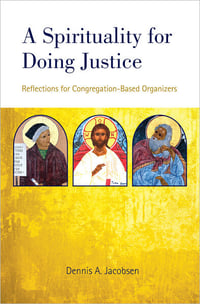Perhaps, like many congregations, your congregation includes many individuals with a lot of societal privilege. Or perhaps your congregation includes many people facing poverty and marginalization. Perhaps your congregation employs a community organizer. Whatever the case may be, your congregation may be interested in grappling with social justice issues, and these books are a first step—or next step—toward doing that. These books are especially useful as group studies that your congregation can tackle together.
Necessary Risks: Challenges Privileged People Need to Face
Theresa McDowell Ott (Author)
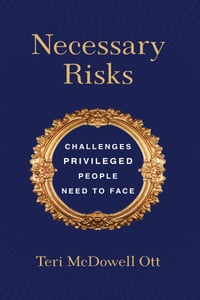 In Necessary Risks, Teri McDowell Ott explores her wrestling, as a privileged white Christian woman, with ten risks and the underlying systems and structures that need to be changed. Such risks, she argues, transform individuals and communities, creating a path toward a more equitable and just world.
In Necessary Risks, Teri McDowell Ott explores her wrestling, as a privileged white Christian woman, with ten risks and the underlying systems and structures that need to be changed. Such risks, she argues, transform individuals and communities, creating a path toward a more equitable and just world.
A Spirituality for Doing Justice: Reflections for Congregation-Based Organizers
Dennis A. Jacobsen (Author)
Jacobsen seeks to integrate spiritual practices (reflections on iconography, in particular) that he claims are foundational to congregation-based community organizing. The book includes introductory chapters to describe his own spiritual practice around icons, several chapters on different figures and what can be learned or gleaned from them as one prepares for justice work. The final section provides a month-long daily office for doing justice, which participants may adopt in their life of prayer and faithful reflection.
Resurrecting Church: Where Justice and Diversity Meet Radical Welcome and Healing Hope
John Cleghorn (Author), Rodney S. Sadler Jr. (Foreword by)
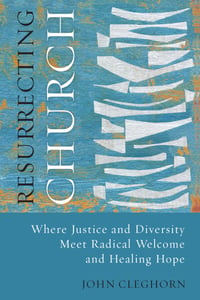 Resurrecting Church interweaves three stories, beginning with the remarkable turnaround story of Caldwell Presbyterian Church, which was on the edge of extinction when author John Cleghorn became its pastor. Cleghorn also tells the story of his own growth and liberation from the myopia of privilege. Also included are stories of several diverse congregations that have taken risks, deepening empathy and seeking justice. The book updates the conversation about church vitality in timely and surprising ways.
Resurrecting Church interweaves three stories, beginning with the remarkable turnaround story of Caldwell Presbyterian Church, which was on the edge of extinction when author John Cleghorn became its pastor. Cleghorn also tells the story of his own growth and liberation from the myopia of privilege. Also included are stories of several diverse congregations that have taken risks, deepening empathy and seeking justice. The book updates the conversation about church vitality in timely and surprising ways.
Christianity in Blue: How the Bible, History, Philosophy, and Theology Shape Progressive Identity
David A. Kaden (Author)
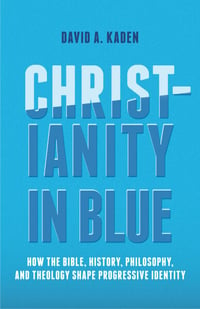 Christianity in Blue shows how liberal values and progressive attitudes are the fruits of taking seriously both the Bible and Christian tradition. But rather than treating these sources as the final word, Kaden argues that they are places to start exploring how to be a Christian in the world. Christianity in Blue helps both progressive and conservative Christians better understand the importance of the Bible, theology, history, and philosophy for building a loving church for everyone.
Christianity in Blue shows how liberal values and progressive attitudes are the fruits of taking seriously both the Bible and Christian tradition. But rather than treating these sources as the final word, Kaden argues that they are places to start exploring how to be a Christian in the world. Christianity in Blue helps both progressive and conservative Christians better understand the importance of the Bible, theology, history, and philosophy for building a loving church for everyone.
We Cry Justice: Reading the Bible with the Poor People’s Campaign
Liz Theoharis (Edited by), William J. Barber II (Foreword by)
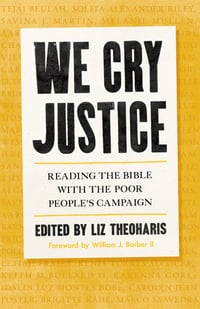 Organized into fifty-two chapters, each focusing on a key Scripture passage, We Cry Justice offers comfort and challenge from the many stories of the poor taking action together. Read anew the story of the exodus that frees people from debt and slavery, the prophets who denounce the rich and ruling classes, the stories of Jesus's healing and parables about fair wages, and the early church's sharing of goods. Reflection questions and a short prayer at the end of each chapter offer the opportunity to use the book devotionally through a year.
Organized into fifty-two chapters, each focusing on a key Scripture passage, We Cry Justice offers comfort and challenge from the many stories of the poor taking action together. Read anew the story of the exodus that frees people from debt and slavery, the prophets who denounce the rich and ruling classes, the stories of Jesus's healing and parables about fair wages, and the early church's sharing of goods. Reflection questions and a short prayer at the end of each chapter offer the opportunity to use the book devotionally through a year.
Doing Justice: Congregation and Community Organizing
Dennis A. Jacobsen (Author)
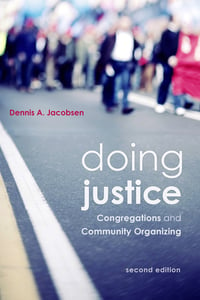 Doing Justice introduces people of faith to congregation-based community organizing rooted in the day-to-day struggles and hopes of urban ministry. Drawing from the author’s decades of experience in community organizing ministry and skillfully illustrated with examples, Dennis A. Jacobsen weaves theological and biblical warrants for community organizing into concrete strategies for achieving justice in the public arena and discusses fundamental organizing principles like power, self-interest, and agitation. The second, updated edition includes a new preface and forewords, new sidebars by Grant Stevensen that draw the reader into conversation, an expanded list for further reading, and updated contact information on organizing networks and relevant websites.
Doing Justice introduces people of faith to congregation-based community organizing rooted in the day-to-day struggles and hopes of urban ministry. Drawing from the author’s decades of experience in community organizing ministry and skillfully illustrated with examples, Dennis A. Jacobsen weaves theological and biblical warrants for community organizing into concrete strategies for achieving justice in the public arena and discusses fundamental organizing principles like power, self-interest, and agitation. The second, updated edition includes a new preface and forewords, new sidebars by Grant Stevensen that draw the reader into conversation, an expanded list for further reading, and updated contact information on organizing networks and relevant websites.
